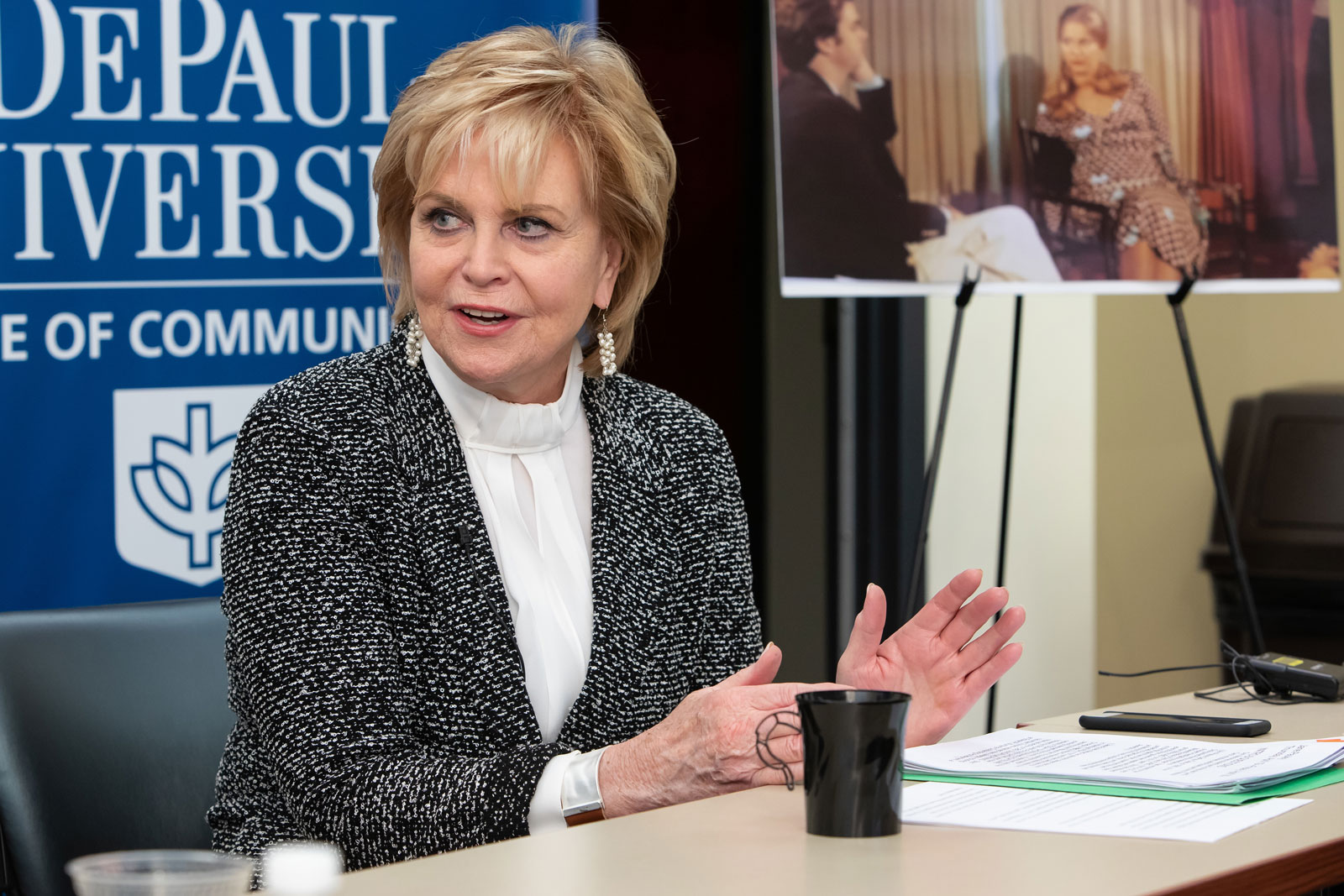 Carol Marin, who has retired from the newsroom, devotes her time to DePaul's Center for Journalism Integrity & Excellence. (DePaul University/Jeff Carrion)
Carol Marin, who has retired from the newsroom, devotes her time to DePaul's Center for Journalism Integrity & Excellence. (DePaul University/Jeff Carrion)For more than 40 years, Chicagoans have relied on
Carol Marin to give them the news—straight and unbiased. In December, still at the top of her game as a reporter and news analyst on NBC-owned station WMAQ-TV and PBS station WTTW-TV, Marin retired from broadcast journalism. The book, however, is hardly closed on Marin’s contributions to the vocation she loves. As a faculty member and co-director of DePaul’s
Center for Journalism Integrity & Excellence (CJIE) with her long-time producer
Don Moseley, Marin continues to prepare young journalists to succeed. We spoke with her about journalism and CJIE.
What changes have you witnessed over the course of your career, and what do they mean for emerging journalists?
The business changes radically every decade. When I started, we used film and then tape. We went from satellite to digital. The basic rule book of journalism—knowing how to write, get your facts right, do your due diligence—is one thing, but now journalists must adapt to the rapid-fire changes in technology. These days, whether you are a reporter or a producer, you have to understand the various and complicated delivery systems for news.
What do you say to people who want news that makes them feel good?
When somebody comes up to me and says, “I only want positive stories,” I ask, “Is a rainy forecast a positive or a negative story?” It may be a positive story if you’re a farmer, but a negative story if you’re a bride with an outdoor wedding. I think we oversimplify so much, even in our discussions of news, that we forget the nuances of our own lives.
How do you help people become more news literate?
You have to start in grade school. You have to start teaching news literacy and civic literacy, something that’s really fallen to the wayside due to budget cuts. I think we need to reinforce—restart, really—an approach that fuses civic literacy and news literacy so that from the time kids are reading, they’re understanding the distinctions, that MSNBC’s newscasts are not NBC News’ newscasts or that there really is a news part of Fox News, not just commentary.
How do you prepare DePaul students to be working journalists?
We try to give to them genuine experience in complicated reporting that will give them a production credit on their resume before they graduate. We also explore what is and is not an ethical question. For instance, our last class worked as production assistants on the debate that I moderated at NBC with U.S. Sen. Dick Durbin and his four opponents. They did research, and we worked on formulating questions that were clear and precise. They did the rehearsals with us on five dedicated Zoom streams, which was a monumental task to try to make it work.
What future plans might you have for the center?
COVID-19 has put the brakes on some of the in-person activities we engage in. But we have one CJIE fellow and hope to add more, so we’re bringing scholars into the center. Right now, we want to do what we currently have done in a more user-friendly form, but always with an eye toward how we can better serve not just our students, but also the whole DePaul community.
Originally published in
Conversations (Spring 2021).